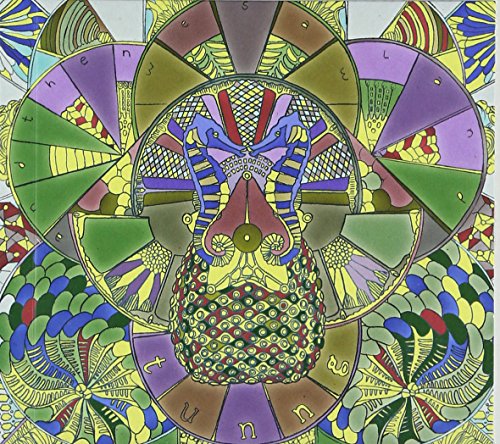
Tunng
...And Then We Saw Land
Release Date: Apr 6, 2010
Genre(s): Rock, Electronic, Alternative, Folk
Record label: Thrill Jockey
Music Critic Score
How the Music Critic Score works
Album Review: ...And Then We Saw Land by Tunng
Very Good, Based on 8 Critics
Based on rating 86%%
God bless Tunng for making what is otherwise one of the more obnoxious genres of music (Folktronica) so damned delectable. Cutesy love songs called “Sashimi” and a chorus that conjures up ghosts of A-ha past would usually be instantly dismissible. However, what other band can make a plucky banjo intro sound like it’s coming from outer space without a shred of irony? Only this band of strange, English merry men.
Based on rating 4/5
That changes might be afoot in the world of Tunng is apparent from Hustle, the opening track of … And Then We Saw Land. Hustle shoots out of the traps, a pop melody borne along on upper-register piano notes, acoustic guitars and banjos, the slight, breathy voices of Mike Lindsay and Becky Jacobs blending in a way that is wistful and charming rather than wimpy and indefinite. It's a fine start to Tunng's fourth album, and one they build on.
Based on rating 8/10
Continuing to edge farther afield from their pastoral past, Tunng's fourth full-length finds the London folktronic outfit weathering a slight reshuffle (essentially a consolidation of their live and in-studio lineups, with the notable departure of founding member/songwriter/habitual non-performer Sam Genders) and emerging in fine form with their fleshiest effort yet. Taking off from its pop-leaning predecessor, Good Arrows, extending that album's broadened instrumental palette and decreased reliance on digital tweaking, And Then We Saw Land ventures in several complementary directions without sacrificing the group's distinctive combination of bucolic folk and whimsical electronic interventions. Right away, the highly hummable "Hustle" marks a clear departure, with whirring synths giving way to a jaunty banjo-led bounce that's the brightest (glockenspiels!) and boldest (drums!) the band has ever sounded.
Based on rating 7/10
While the phrase 'folktronica' doesn't seem to send a shudder of revulsion down the spines of discerning music fans in the way that, say 'nu-rave' does, it is still the cause of much cynical eye-rolling. In the case of Tunng this tag is most frequently referred to as an albatross around their collective necks. Perhaps it's the implication that the artist in question thinks they're pushing the envelope by crossing the two genres that inspires such scepticism a good seven years on from the release of what is considered to be the definitive folktronica album, Four Tet's Rounds.
Based on rating 7/10
The final chorus of East London-based collective Tunng’s fourth record features the lyric “let it be beautiful when we sing the last song”, and serves partially as an indicator for what to expect from the rest of the preceding songs. Ever whimsical in their previous work, maybe even capricious, they have calmed down in many ways here, letting anthemic melodies and communal sing-alongs dominate. For many bands, this is the moment when the hardcore depart as the converts are attracted by this hot new sound.
Based on rating 6/10
You know what? You can’t beat a good -tronica from time to time, can you? First there was electronica, obviously, and then it seemed you could put beeps and effects over any style of music and hey, you had a new style of music and a handy suffix to define it! Good old -tronica. We all know indietronica, but then, what next? Metaltronica? Jazztronica? Sadly, landfill indietronica seems the most likely. Anyway, Tunng can be thrust into the pigeonhole labelled “folktronica”.
Based on rating 5.8/10
Even factoring in the tendency for bands to grow less weird as they get older, Tunng's move toward the middle is sort of remarkable. Once a band who incorporated dusty electronics and odd instruments in sweetly bizarre folk songs, Tunng now record folk songs that are sweetly... sweet. That's an indictment, but less of one than it seems.
Opinion: Excellent
A revealing, liberating experience that finds them leading the field again. Andy Fyfe 2010 A quiet and oh-so English revolution has swept through folkie collective Tunng since their last album, 2007’s Good Arrows. Not only have they lost founding member, singer and once-chief songwriter Sam Genders, they’ve added a new lyricist, renewed their acquaintance with electronic experimentation and embraced their inner adventurer.

